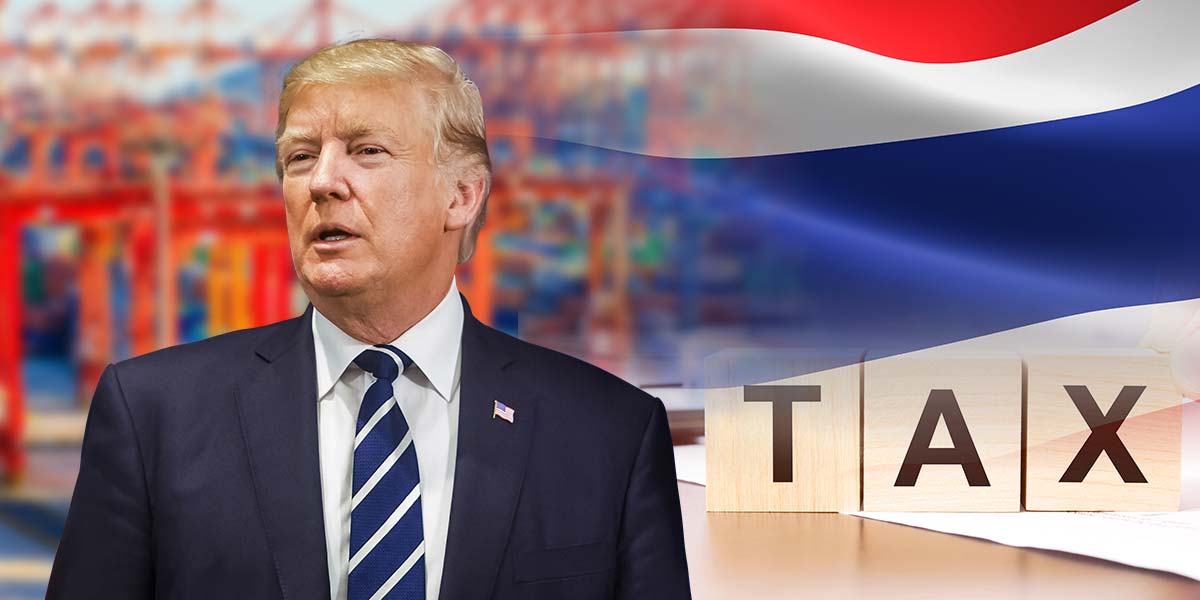In response to the U.S. tariff measures implemented under President Donald Trump, the Thai government has outlined a strategic plan to negotiate with the United States and mitigate potential impacts. Bualuang Securities (BLS) made several comments, giving insights from interviews with Deputy Prime Minister and Finance Minister Pichai Chunhavajira shed light on the government’s approach:
- Increased U.S. Imports: Bualuang Securities notes that the government plans to increase the purchase of U.S. products, including soybeans, corn, aircraft, and LNG, which are items Thailand already imports from abroad. It is a strategic shift in sourcing.
- Strict Enforcement on Export Rights: The Finance Minister emphasized stricter regulations against the exploitation of export rights. This includes cases where imported raw materials are rebranded as Thai-produced to leverage tax incentives. Though the Minister did not specify the scale, they indicated awareness of the culprits and committed to rigorous enforcement. BLS highlights that such activities bring negligible benefits to the Thai economy.
- Pork Import Prospects: The possibility of importing U.S. pork seems minimal or unlikely due to Thailand’s slight oversupply and potential adverse effects on local farmers. Bualuang Securities points out that importing raw materials instead might reduce production costs.
- Financial Efficiency Over Cash Handouts: The possibility of a 10,000 baht cash handout scheme appears diminished. The Finance Minister stressed the need for greater efficiency in government expenditure, potentially coupled with a temporary uplift in the public debt ceiling to prioritize infrastructure investment, notably in the country’s irrigation development projects.
- Irrigation Development Information: Research indicates Thailand has 149 million rai of agricultural land, yet only 32 million rai is irrigated out of the potential 61 million rai. Enhancements in irrigation could improve production efficiency and reduce costs.
- 20-Year Irrigation Strategy: Since 2018, the Royal Irrigation Department has a 20-year strategic plan advocating substantial irrigation investments exceeding 600 billion baht. Key projects include the development of new water sources and expansion of irrigated areas through dam and reservoir construction and improvement of water delivery systems.
Conclusion: Bualuang Securities suggests Thailand has a definitive strategy for negotiations, yet it remains uncertain if this aligns with U.S. expectations. In terms of impact management, a positive outlook is the potential focus shift towards infrastructure investment rather than monetary distribution.
Investment Strategy Implications:
- CPF / BTG / TFG: Likely shielded from pork imports and may benefit from reduced costs.
- LNG Purchases: Scrutiny needed on which entities, among domestic giants PTT and GULF, will secure LNG purchases.
- Construction Sector: The public sector demand for construction, particularly companies like STECON / CK and cement, is expected to rise. Preference may lean towards local over foreign players.





